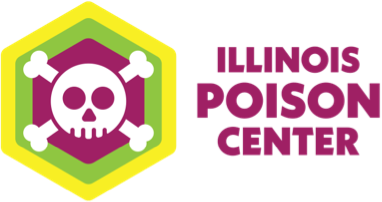Opioids
Prescription opioids became a more frequently used method of relieving pain in the late 1990s. Yet these drugs are highly addictive. By time this was known, America was in an opioid crisis, which continues today and has harmed millions of people. Misuse of prescription and non-prescription opioids is dangerous and can lead to overdose and death. Call 911 immediately if you suspect someone is overdosing on opioids.
What Are Opioids?
Opioids are a broad class of drugs that work in body and brain to produce a variety of effects. These include:
Offering pain relief
Slowing the gastrointestinal system in cases of severe diarrhea
Providing a feeling of euphoria and well-being desired in cases in opioid abuse
Types of Opioids
The term “opioids” describes the drug in all forms: natural, semisynthetic and synthetic compound. Each form stimulates opioid receptors in the body.
Opiates refer to natural products derived from the opium poppy and include opium, morphine, codeine and heroin.
Semisynthetic opioids are modified from natural opiates and have similar structures. These include common painkillers like hydrocodone, oxycodone, hydromorphone and others.
Synthetic opioids are created in a lab and do not have structures similar to opiates. They include drugs such as methadone, fentanyl and tramadol.
Symptoms of Opioid Overdose
Harmful effects to opioids can occur from using them just once and from chronic, repeated use. Taking too much of an opioid at one time can lead to an overdose.
There are three classic symptoms of opioid overdose:
Coma: The person is unconscious and cannot be woken up.
Pinpoint pupils: If you open the person’s eye, the pupils will be very tiny.
Respiratory depression: The person is breathing too slowly to oxygenate the body. If this goes on too long, the person can turn blue in color and it can lead to death.
Call 911 immediately if you suspect someone is overdosing on opioids.
Effects of Chronic Opioid Use
Chronic use—or using a drug over long period of time—can lead to opioid tolerance, dependence and addiction. These are three different physiological and psychological states.
Physiological refers to the body’s normal functions.
Psychological refers to mental and emotional states.
Opioid tolerance occurs when a person using opioids begins to experience a reduced response to medication, requiring more opioids to experience the same effect. That effect may be pain relief or getting high.
Opioid dependence occurs when the body adjusts its normal functioning around regular opioid use. People who are opioid dependent experience withdrawal when they stop using the drug. They physical symptoms of withdrawal are very unpleasant.
Opioid use disorder (OUD) occurs when the craving for the drug leads to destructive or harmful behavior. People with OUD are unable to reduce or control their use of the drug. Social problems can result. These include the failure to fulfill obligations at work, school and home. OUD often follows opioid tolerance and dependence. It becomes physically challenging to stop opioid use.
Preventing Overdose and Treating OUD
If you are prescribed on opioid for pain relief, keep the medication out of sight and in a locked box so no one else has access to it.
Locking up medication can also prevent unintentional poisoning in children and drug diversion by others. Drug diversion is when prescription medicines are obtained or used illegally.
Have naloxone present in the home and other areas that use may occur. Naloxone can reverse the effects of opioids in the brain and wake someone up if they overdosed.
People with OUD typically require specialized treatment to return to good health. In Illinois, the Illinois Helpline for Opioids and Other Substances is a statewide program that provides assistance in finding substance use treatment and recovery services for affected individuals and their families. To reach the helpline specialists, call 833-234-6343 or text “HELP” to 833234 or go to the link above to start a chat.
